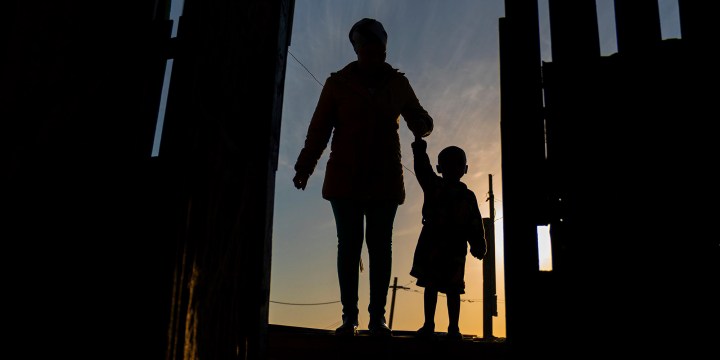CHILD SERVICES OP-ED
Collaborative support for children and caregivers is vital to fast-track child wellbeing

Integrating health, education and psycho-social services at home, at school and in the community can make a real, positive difference in the lives of children impacted by poverty and social strife.
The Covid-19 pandemic has deepened the challenges that young children across South Africa face: poverty, poor schooling outcomes and living conditions, violence, abuse and neglect.
They and their carers — parents, guardians, grandparents, older siblings — must also grapple with uncoordinated, fragmented and inadequate service provision.
But, as a new study by a multi-disciplinary group of researchers and stakeholders shows, integrating health, education and psycho-social services at home, at school and in the community can make a real, positive difference. This is crucial if we are to make up lost ground due to the pandemic and in the current situation marked by rising food and energy prices, persistently high unemployment, and social and political strife.
The study emerges from a Community of Practice (CoP) that aims to strengthen social systems in a bid to improve child wellbeing outcomes. It tackles issues of hunger, material deprivation, parental engagement in learning, psychosocial wellbeing, caregiver mental health and child health.
It also seeks to improve learning outcomes in mathematics and language competencies. An extensive body of research globally and at home has found that positive, supportive early experiences in these crucial areas leads to better outcomes later in life.
The CoP brings together teachers, nurses, social workers and educational psychologists who conducted multi-level developmental assessments of 162 children in grades R in 2020 and 140 children in 2021. The assessments were conducted in five public schools in disadvantaged and poor communities in the City of Johannesburg; all the children who took part were beneficiaries of the Child Support Grant (CSG). An innovative digital tool was developed for these assessments.
The same children were assessed a year later when they were in grades 1 and 2 respectively. Here’s what the researchers found:
- Over the two years of assessment, there were improvements in key wellbeing indicators and a stabilisation of participating families’ circumstances;
- The most significant stressors were economic in nature, a result of the Covid-19 pandemic and resulting lockdowns. Loss of a job (16%), not having enough money to buy food (13%) and an inability to seek work (12%) were the top three stressors that affected the families with young children in the study. This was evident in the risk profiles of the children in wave 1 when 57% of the children were at high risk of material deprivation. Although economic risk declined at wave 2 by 7%, half of the children continued to live in families that experienced significant income constraints. This was reflected in high rates of indebtedness of caregivers 18 months after the first lockdown started as savings and other resources were expended;
- Top-ups of the CSG and the subsequent extension of access to the Social Relief of Distress Grant helped to mitigate families’ economic challenges; and
- There was also a substantial improvement in access to social and material support from wave 1 to wave 2. In the second wave, 64% of participants said their extended families, social networks and in some cases social services, were providing vital support.
The researchers also reported that both children’s and their caregivers’ coping capacities “improved as they adapted to changing circumstances during the pandemic”. Children also reported a 10% reduction in vulnerability to psychosocial risk from wave 1 to wave 2. The children told researchers that they’d become increasingly reliant on their peers — and this, they said, helped them to become more resilient.
Among other things, the study’s authors expressed concern about food insecurity, worryingly high rates of depression among children’s caregivers and the fact that 27% of child participants had incomplete vaccinations by the end of wave 2.
Overall, the findings offer pointers for multi-sectoral interventions at family and community levels and for social protection policies such as social grants, food relief, health, educational and social work interventions to step up well-being outcomes for children in disadvantaged communities using the school-family and community as the nexus for social interventions. Both children and their caretakers need continuing support.
The CoP study illustrates the importance of a transdisciplinary approach to understand and develop solutions to multiple risks to their wellbeing. It also draws attention to the important role of monitoring how they are faring in the early grades. This data can be used both to guide remedial interventions and to find early evidence-based preventive and promotive interventions.
In 2023 the Department of Basic Education (DBE) is set to take over the responsibility for early learning from the Department of Social Development. The study authors pointed out that the DBE could learn from existing initiatives to ensure better outcomes for early grade learners.
“There is much innovation at school and community levels by non-governmental organisations and corporate social investment initiatives that could provide practical and workable solutions to learn from. The CoP model is one such innovation.
“Practice-based research such as the CoP could provide insight into learning about what might be feasible in a particular community environment; the potential for resource sharing between governmental and non-governmental organisations, and the value of partnering in service provision and in the harnessing of knowledge and tested interventions across sectors and disciplines.
“The study findings also show that a community of practice approach focused on child wellbeing outcomes is a worthy endeavour, one which is already provided for in education policies in South Africa.” DM
Prof Leila Patel is DSI/NRF Chair in Welfare and Social Development at the University of Johannesburg (UJ). Prof Elizabeth Henning is DSI/NRF Chair in Integrated Studies of Learning, Language, Mathematics and Science in the Primary School, UJ. Prof Jace Pillay is DSI/NRF Chair in Education Psychology, UJ.



















 Become an Insider
Become an Insider
Comments - Please login in order to comment.